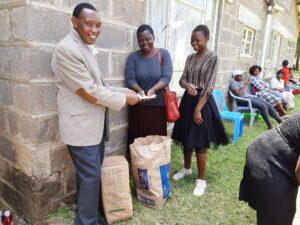[For francophone friends and colleagues; this is something which I shared in Théologie Contextuelle en Afrique, a forum for pastors and theological educators (bible colleges and seminaries) in francophone Africa which I help administer. The version here has been lightly edited to be more generally applicable. I apologize in advance for any bad grammar or other errors in what I have written! For an English version, see my “Does culture matter?” post.]
La culture est-elle importante ? Plus précisément, je veux discuter du rôle important que joue la culture dans nos formulations théologiques. Dans ce groupe, nous savons que la culture compte, mais la question reste de savoir comment la culture compte. Quel est le rôle approprié de la culture dans notre théologie ?
Je suis historien. Au sein de la tradition chrétienne, je vois que la culture et la langue — notamment le grec, le syriaque, le latin, le copte, l’arménien, le géorgien, le guèze (ou le vieil éthiopien) pendant l’ère patristique — ont influencé les articulations théologiques. Ou, comme j’aime cuisiner dans la cuisine et que mes amis me considèrent même comme un chef, je pourrais dire que la culture confère une certaine saveur ou un certain arôme à la façon dont nous « faisons » la théologie.
Veuillez noter que je n’appelle pas au relativisme théologique. Mais j’affirme que nous ne devrions pas absolutiser les articulations théologiques précédentes spécifiques à la culture — les expressions théologiques occidentales ont beaucoup à offrir au christianisme mondial et ne doivent pas être écartées. Mais ils ne doivent pas non plus être absolutisés.
Plus récemment, je peux voir des différences entre le christianisme anglophone d’Angleterre ou d’Amérique et le christianisme francophone de France ou de Belgique — bien que le christianisme anglophone et francophone soient certainement comme des frères dans le contexte du christianisme occidental. Cependant, lorsque nous passons à des cultures non européennes (et je considère que les cultures d’Amérique du Nord sont principalement européennes, ou, si vous préférez, euro-américaines), il est possible de voir de plus grandes différences dans l’expression chrétienne. Naturellement, lorsque nous entrons dans les théologies vernaculaires — penser dans les langues d’Afrique ou d’Asie au lieu d’insister sur des formes francophones, anglophones ou lusophones — ces différences s’accentuent, tout comme les formulations théologiques guèze et syriaque semblent assez différentes de la théologie théologique francophone. formulations du christianisme occidental auxquelles nous sommes habitués !
Différentes cultures posent des questions différentes. Les réponses données par de brillants théologiens il y a mille ans, ou il y a cinq cents ans, en France, en Angleterre ou en Allemagne pourraient ne pas être pertinentes pour nos contextes africains, simplement parce qu’ici, dans les divers pays d’Afrique, nous posons différentes questions auxquelles théologie chrétienne occidentale traditionnelle n’a tout simplement pas de réponses.
Veuillez me pardonner si mon discours a été trop long, mais je suis enseignant ! et permettez-moi de reformuler ma question :
- Lorsque nous théologisons, la culture importe-t-elle ?
- Si la culture est importante, quel est son rôle et sa fonction appropriés ?
- Spécifiquement dans le cadre des réalités contextuelles africaines dans lesquelles la plupart des membres du groupe vivent et travaillent, quel est le rôle et la fonction appropriés de la culture africaine dans notre théologie (chrétienne) ?
C’est ma conviction que les chrétiens africains ne sont pas seulement authentiquement chrétiens mais peuvent aussi être authentiquement africains.







